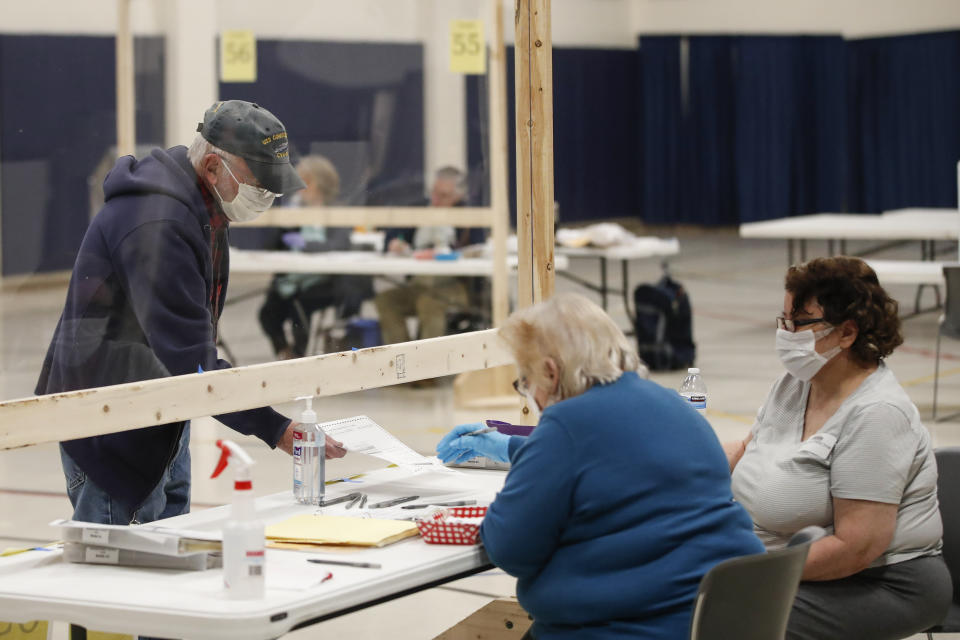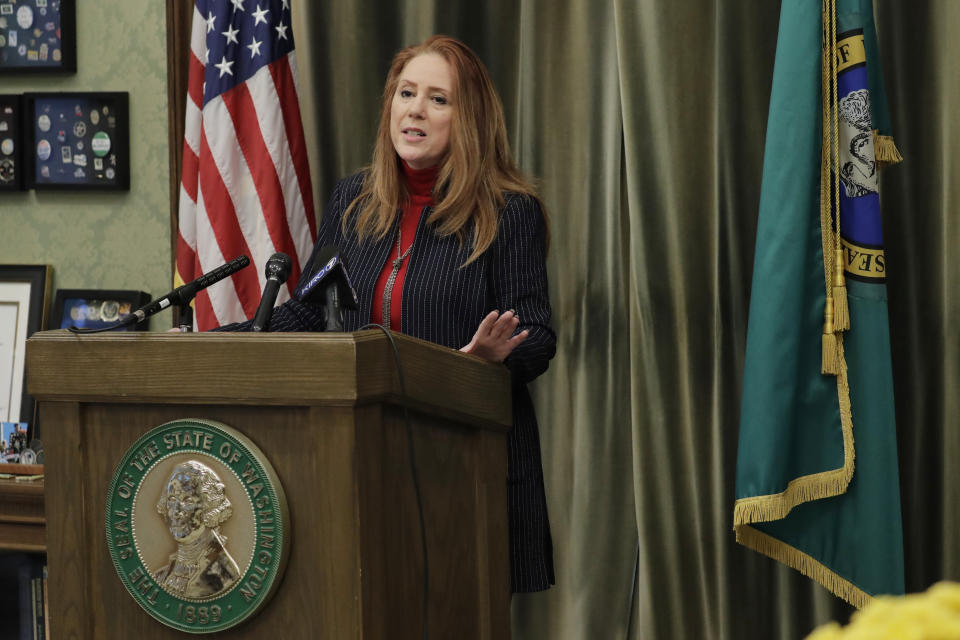Coronavirus will necessitate recruitment effort unseen since World War II to staff voting booths, election official warns
States will face severe shortages of election workers for November’s presidential election and will need to find new ones because of the coronavirus, the top elections official in Washington state said Wednesday.
“As a nation we are going to need to do the biggest recruitment effort, probably since World War II — in terms of personnel — to staff polling places and voting centers and election processing warehouses,” said Kim Wyman, Washington’s secretary of state.
Wyman testified via teleconference during a meeting of the Election Assistance Commission, a federal government agency created in 2002. She told the commissioners that she expects her state and most others to lose a majority of their traditional poll workers, who tend to be older and therefore at greater risk of infection.
“Most of our seasonal workers come from people who are 65 and older, and we know that out of the gate we are going to lose between half and two-thirds of our workforce and we’re going to have to rebuild that nationally,” Wyman said.

This happened in Wisconsin in the lead-up to its April 7 primary election. More than 7,000 poll workers backed out in the days leading up to the election, and the state had to call in the National Guard to help staff polling places after the Legislature rejected the governor’s attempt to postpone the election.
The Wisconsin primary saw nearly record turnout among Democratic voters, even as more than 80 percent of the vote came in by mail. It took six days to report the results, a possible preview of what will happen in November. Experts warn that due to an increase in mail-in balloting, presidential election results could be delayed by a week or more.
Wisconsin officials also reported that seven people may have fallen ill due to in-person voting during the primary.
Wyman and other elections officials in the teleconference said that they expect the percentage of Americans voting by mail to go up significantly for the fall election. That will create a need in many states for an increase in short-term employees to help with the operation of sending out, and then receiving and counting, mail-in ballots.
Most counties in Washington state moved to all-mail elections in 2005. It is one of only five states in the country that conduct all-mail ballot elections, along with Oregon, Utah, Colorado and Hawaii.

But for states that have historically voted predominantly in person, Wyman said that elections officials should prepare for a significant increase in mail-in ballots.
“Sixteen percent of our population is over 65 and you can guarantee that those folks are going to want to vote by mail,” Wyman said. “You’re going to have to deal with that volume.”
Older Americans also tend to vote in greater numbers than the rest of the population. Wyman said that “the further from vote-by-mail a state is ... the more heavy that lift is going to be.”
A mail vendor testified to the commission that states will need to start preparing for an increase in mail-in ballots sooner rather than later, and should not wait to stock up on ballots and envelopes, or to figure out how they will conduct other aspects of a new type of voting.
“Getting your orders in early is critical to success on this,” said Kevin Runbeck, CEO of Runbeck Election Services, a Phoenix company focused on printing and mailing ballots.
“These decisions need to be now, or we won’t be there for you later in the year.”

_____
Click here for the latest coronavirus news and updates. According to experts, people over 60 and those who are immunocompromised continue to be the most at risk. If you have questions, please refer to the CDC’s and WHO’s resource guides.
Read more:



